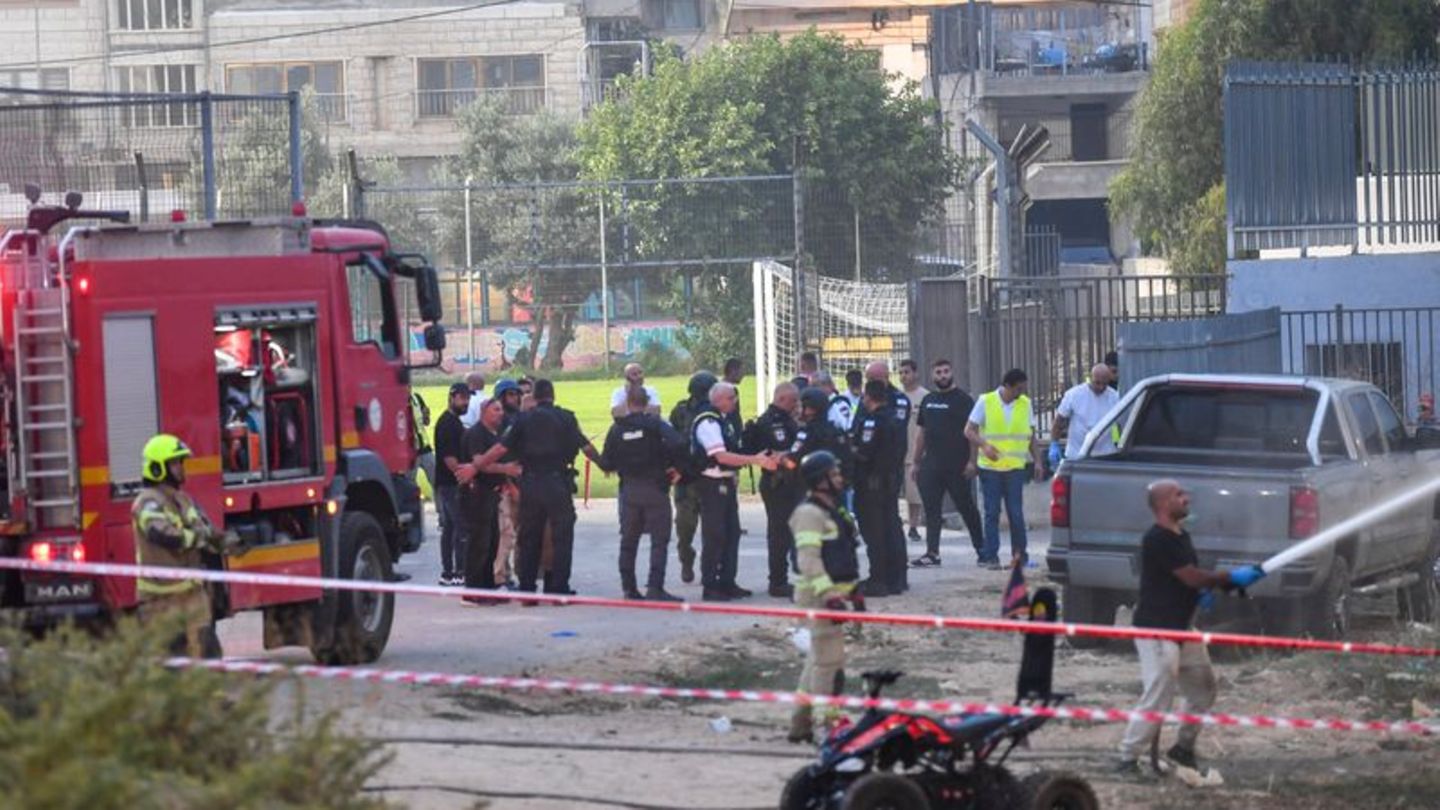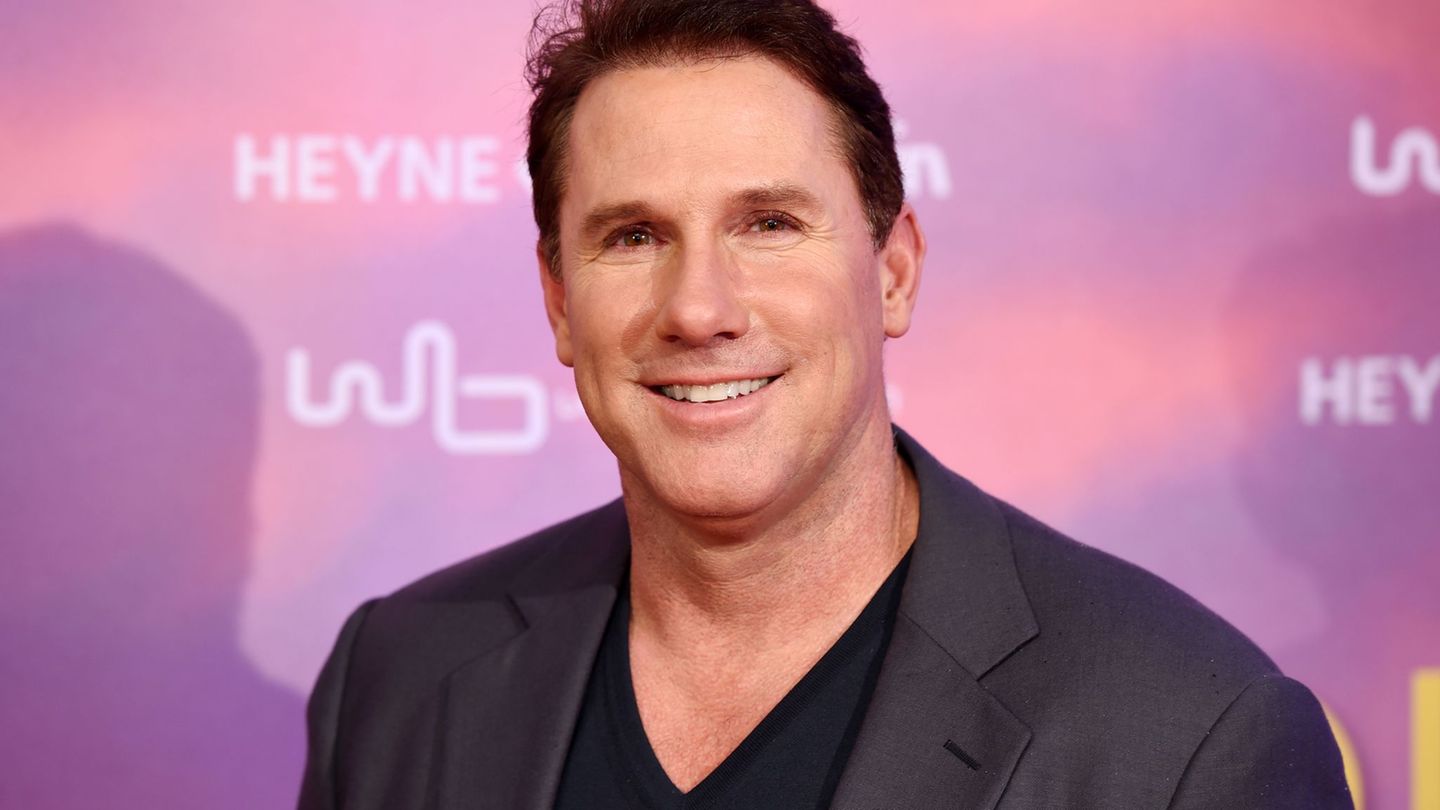Children playing football become victims of a bloody attack. The Israeli army believes the Lebanese Hezbollah is responsible. Israel is threatening retaliation.
After the devastating impact of a rocket on the Israeli-occupied Golan Heights, fears are growing that the region will ignite a conflagration. The death toll has risen to twelve, Israeli military spokesman Daniel Hagari said at a press conference at the site of the attack, according to a report in the newspaper “The Times of Israel”. The deadly rocket hit a soccer field. All of the victims are reportedly between 10 and 20 years old. The Lebanese Hezbollah fired the missile, Hagari said. Israel’s Prime Minister Benjamin Netanyahu immediately threatened the Shiite militia with retaliation.
According to Hagari, there is sufficient military and intelligence information that the rocket was fired by Hezbollah. He also identified it as an Iranian-made Falak-1. “A Falak-1 rocket hit the football field here, an Iranian rocket with a warhead containing over 50 kilograms of explosives,” he said. The Falak-1 is only used by the terrorist group Hezbollah, which carried out the attack from Shebaa in southern Lebanon.
“Hezbollah will pay a high price for this, a price it has not yet paid,” Israeli media quoted Netanyahu as saying. The head of government had brought forward his planned departure from the USA by several hours, his office wrote on X. After his return, the head of government would convene the security cabinet, it said. Netanyahu had given a speech to Congress in the USA and met with US President Joe Biden, Vice President Kamala Harris and former President and presidential candidate Donald Trump.
Hezbollah immediately denied any involvement. Hagari spoke of the deadliest incident for Israeli civilians since fighting broke out between Israel and Hezbollah last October. The Israeli military leadership met immediately after the incident to discuss the situation. Defense Minister Joav Galant was presented with “several options for operations against Hezbollah,” the ministry said. The minister determined the course of operations and issued the corresponding orders, the statement said, which gave no further details.
Victims were Arabic-speaking Druze
The rocket attack hit a place where mainly Arabic-speaking Druze live. The religious community emerged from Shiite Islam in the 11th century and today mainly lives in Syria, Lebanon, Israel and Jordan. In the respective countries, its members value internal cohesion and loyalty to the respective state.
In a statement, Hezbollah said it had nothing to do with the incident. It categorically rejected the accusations that it had attacked Majd al-Shams. Army spokesman Hagari called this a “lie”. Israeli military expert Sarit Zehavi pointed out that the Shiite militia had previously claimed responsibility for attacks on an Israeli military base on Mount Hermon. “It is very easy to miss the base on Mount Hermon with inaccurate rockets,” she said. Majd al-Shams is located directly below it.
The rocket attack has fueled fears in the US government that it could lead to an open war between Israel and Hezbollah, wrote the well-connected Israeli journalist Barak Ravid in the US portal “Axios”. “What happened today could be the trigger for what we have been fearing and trying to prevent for ten months,” Ravid quoted a US government official as saying. The USA is Israel’s most important ally. American and French diplomats have been trying for months to ease the conflict between Israel and the Shiite militia.
“Everyone in Lebanon, Palestine and the Golan Heights” must refrain from “slip-ups or incitement” in the context of Israel’s war in Gaza, said the speaker of the Lebanese parliament, Nabih Berri. The country’s caretaker government condemned “all acts of violence and attacks against civilians” and called for an “immediate end to fighting on all fronts,” the state agency NNA reported. The UN observer mission Unifil, which has been monitoring the border area since 1978, said it was “in contact with the parties to reduce tensions.”
Hezbollah sources told the German Press Agency that the militia is now expecting a possible “hard attack”. They have been on standby for months and are on the lookout for any attack from the enemy. Lebanese media reported that the militia had evacuated around 100 of its posts in suburbs south of the Lebanese capital Beirut in anticipation of a possible Israeli attack. Hezbollah is particularly active in these areas.
Constant fighting since the outbreak of the Gaza war
Since the Gaza war began last October, Hezbollah and the Israeli army have been fighting almost daily. At least 100 civilians have been killed on the Lebanese side, and around 360 Hezbollah fighters have been killed. There have also been deaths on the Israeli side. Tens of thousands have been displaced by the fighting on both sides of the border.
The rocket attack followed an Israeli attack in the village of Kfar Kila near the Lebanese-Israeli border in which Hezbollah said four of its members were killed. The Iran-backed militia says it is acting in solidarity with Hamas, which is also active in Lebanon.
Israel’s war against Hamas was triggered by the unprecedented massacre that left 1,200 people dead, which the Islamists committed together with other groups from the Gaza Strip in southern Israel on October 7 of last year. According to Palestinian sources, at least 30 people were killed in an Israeli air raid on a school building in Deir al-Balah on Saturday. The Israeli military said it had attacked a Hamas command center there.
Source: Stern
I have been working in the news industry for over 6 years, first as a reporter and now as an editor. I have covered politics extensively, and my work has appeared in major newspapers and online news outlets around the world. In addition to my writing, I also contribute regularly to 24 Hours World.




